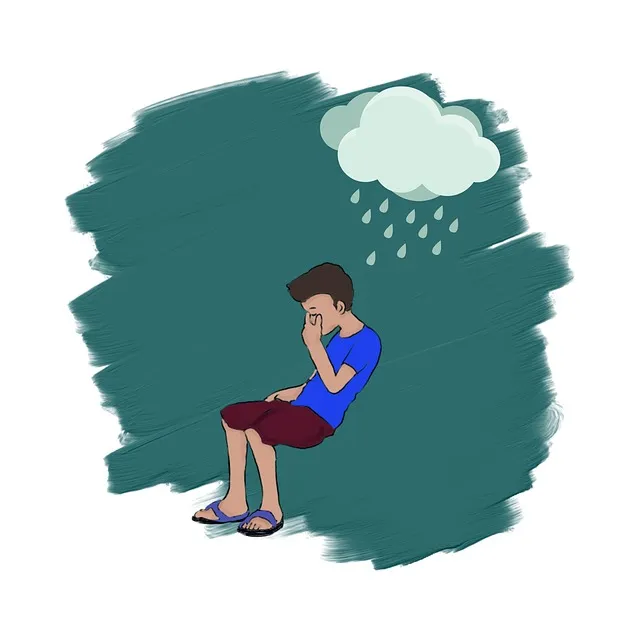Burnout among healthcare providers, especially in mental health fields like those at Lone Tree Kaiser, is a growing concern due to demanding work. High-stress situations lead to emotional fatigue, decreased job satisfaction, and reduced empathy. Lone Tree Kaiser's mental health classes offer crucial tools for prevention, including conflict resolution techniques and cultural sensitivity training. Their initiatives focus on provider well-being through structured time management, self-care encouragement, and recognition. These classes enhance social skills, compassion, and resilience, creating a supportive work environment that reduces burnout risk, improves patient care, and fosters long-term staff satisfaction.
Healthcare provider burnout is a growing concern, impacting both individual well-being and patient care. This article explores evidence-based strategies to combat burnout among healthcare professionals, focusing on the successful initiatives at Lone Tree Kaiser. From recognizing early signs to implementing support groups like those for mental health, we delve into effective approaches. Additionally, we discuss work-life balance tactics, professional development benefits, and cultivating a resilient workplace culture at Lone Tree Kaiser to prevent burnout and promote sustainable practice.
- Understanding Burnout Among Healthcare Providers: Recognizing the Signs
- The Role of Mental Health Classes and Support Groups at Lone Tree Kaiser
- Work-Life Balance Strategies for Burnout Prevention
- Enhancing Job Satisfaction through Professional Development and Recognition
- Creating a Supportive Workplace Culture to Foster Resiliency
Understanding Burnout Among Healthcare Providers: Recognizing the Signs

Burnout among healthcare providers is a growing concern, especially considering the demanding nature of their work. It’s crucial to recognize that burnout isn’t just physical exhaustion; it also encompasses emotional fatigue and depersonalization. Healthcare professionals, particularly those in mental health fields like Lone Tree Kaiser’s programs, often deal with high-stress situations daily, leading to potential signs of burnout if left unaddressed. These indicators may include decreased job satisfaction, increased cynicism towards patients, reduced empathy, and feelings of ineffectiveness or lack of control.
The cultural sensitivity inherent in mental healthcare practice plays a vital role in preventing burnout. Understanding diverse patient backgrounds and incorporating communication strategies tailored to their needs can mitigate the risk. Additionally, conflict resolution techniques learned through training can help professionals navigate challenging situations, fostering healthier work environments. These proactive measures are essential steps towards ensuring the well-being of both providers and their patients.
The Role of Mental Health Classes and Support Groups at Lone Tree Kaiser

At Lone Tree Kaiser, recognizing the profound impact of mental health on healthcare provider well-being is a key driver behind the implementation of various initiatives. One such effective strategy is the offering of Lone Tree Kaiser mental health classes and support groups. These programs provide a safe and supportive environment for medical professionals to learn, share experiences, and gain valuable insights into managing stress and promoting mental wellness. The mental health classes cater to diverse needs, encompassing topics from communication strategies to trauma support services, ensuring that providers have access to comprehensive resources.
Moreover, the ongoing Mental Wellness Podcast Series Production at Lone Tree Kaiser further enhances these efforts by offering accessible content that can be readily integrated into busy schedules. This dynamic approach encourages healthcare providers to prioritize their mental health and equips them with practical tools to navigate professional challenges more effectively. By fostering open dialogue and empowering self-care, Lone Tree Kaiser is committed to creating a resilient and thriving workforce dedicated to delivering exceptional patient care.
Work-Life Balance Strategies for Burnout Prevention

Maintaining a healthy work-life balance is an essential strategy to prevent burnout among healthcare providers. With demanding schedules and high-stress environments, it’s crucial for medical professionals to set boundaries and prioritize self-care. Healthcare workers can achieve this by implementing structured time management techniques, such as scheduling dedicated leisure activities and setting specific work hours. Encouraging a culture where taking breaks is normalized and supported can significantly reduce burnout rates.
Lone Tree Kaiser mental health classes offer valuable resources for practitioners seeking to enhance their well-being. These classes provide an opportunity to learn coping skills development techniques, which are vital for managing stress and anxiety relief. By focusing on self-esteem improvement, healthcare providers can boost their resilience, making them better equipped to handle challenging situations while maintaining a positive mindset.
Enhancing Job Satisfaction through Professional Development and Recognition

Healthcare providers, like any professionals, seek growth and recognition in their careers. Enhancing job satisfaction through professional development opportunities is a potent burnout prevention strategy. Lone Tree Kaiser mental health classes, for instance, offer healthcare providers a chance to upskill, gain new perspectives, and connect with peers, fostering a sense of community that can mitigate stress and burnout. These classes not only equip practitioners with the latest techniques in trauma support services and depression prevention but also provide a platform for open dialogue and shared experiences.
Recognition plays a significant role in boosting job satisfaction. Acknowledging healthcare providers’ contributions, both big and small, can go a long way in preventing burnout. Simple gestures such as public praise, peer-to-peer recognition, or even formal awards can validate their efforts, reminding them of the positive impact they have on patients’ lives. By prioritizing professional development and recognizing their dedication, healthcare organizations can contribute to creating an environment that supports mental health and prevents burnout, ultimately enhancing the overall quality of care.
Creating a Supportive Workplace Culture to Foster Resiliency

In today’s demanding healthcare landscape, fostering a supportive workplace culture is an essential strategy to prevent burnout among providers. Lone Tree Kaiser mental health classes and similar initiatives play a pivotal role in this regard, offering staff opportunities to enhance their social skills and cultivate compassion. These programs not only empower healthcare professionals with effective communication techniques but also provide a safe space for them to share experiences, build connections, and develop resilience against the challenges they face daily.
By integrating such training and support services as Social Skills Training, Compassion Cultivation Practices, and Trauma Support Services, healthcare organizations can create an environment that values and nurtures employee well-being. This, in turn, leads to higher job satisfaction, improved patient care, and a more robust overall working culture. A supportive culture acts as a buffer against stress, fostering adaptability and resilience among providers, ultimately contributing to their long-term success and the organization’s sustainability.
Healthcare provider burnout is a growing concern, but with the right strategies, it can be mitigated. Organizations like Lone Tree Kaiser are setting examples by offering mental health classes and support groups, promoting work-life balance, fostering job satisfaction through professional development, and cultivating a resilient workplace culture. By implementing these comprehensive strategies, healthcare facilities can ensure their providers maintain high levels of well-being, ultimately enhancing patient care and the overall efficiency of the healthcare system.






